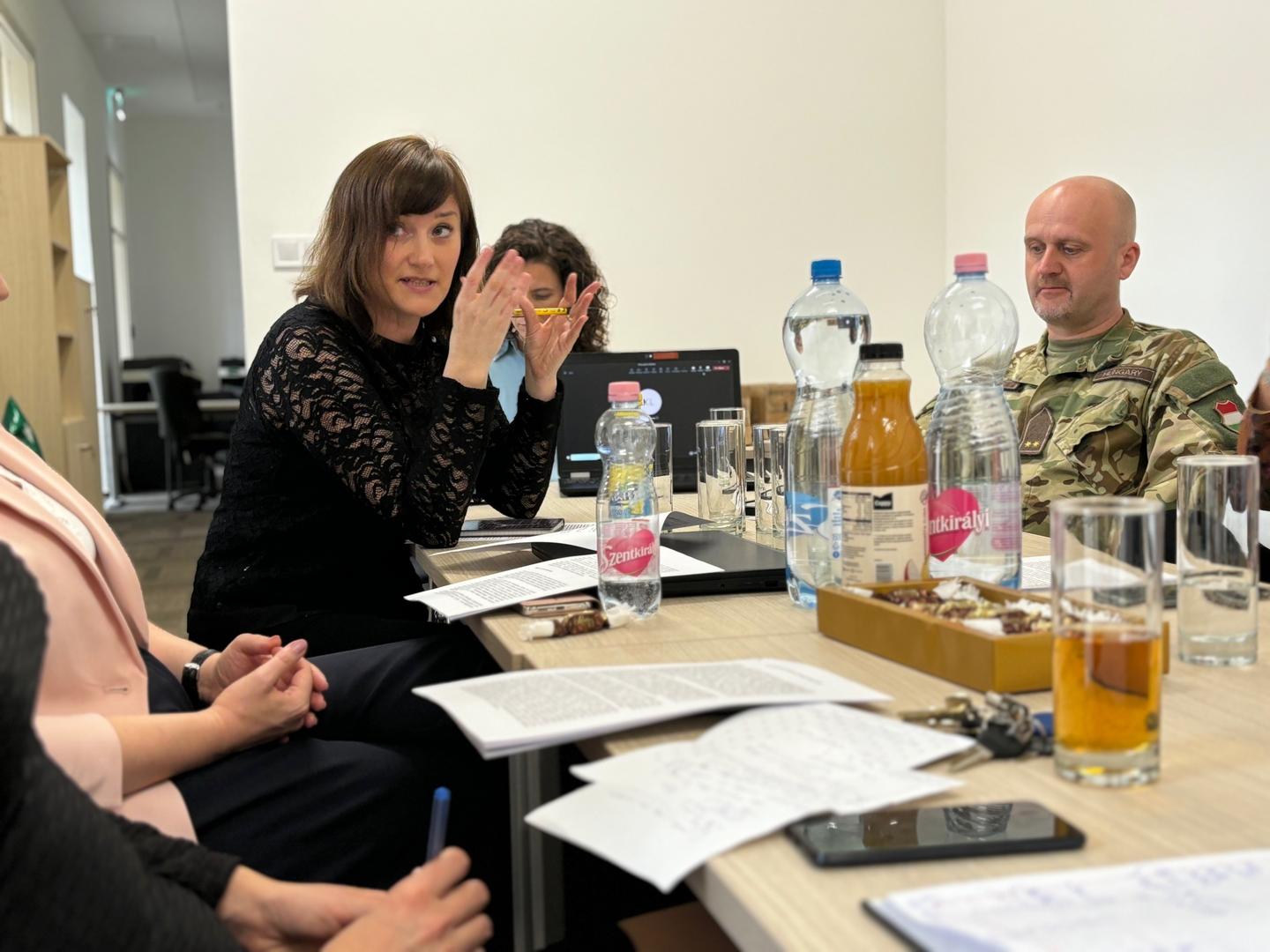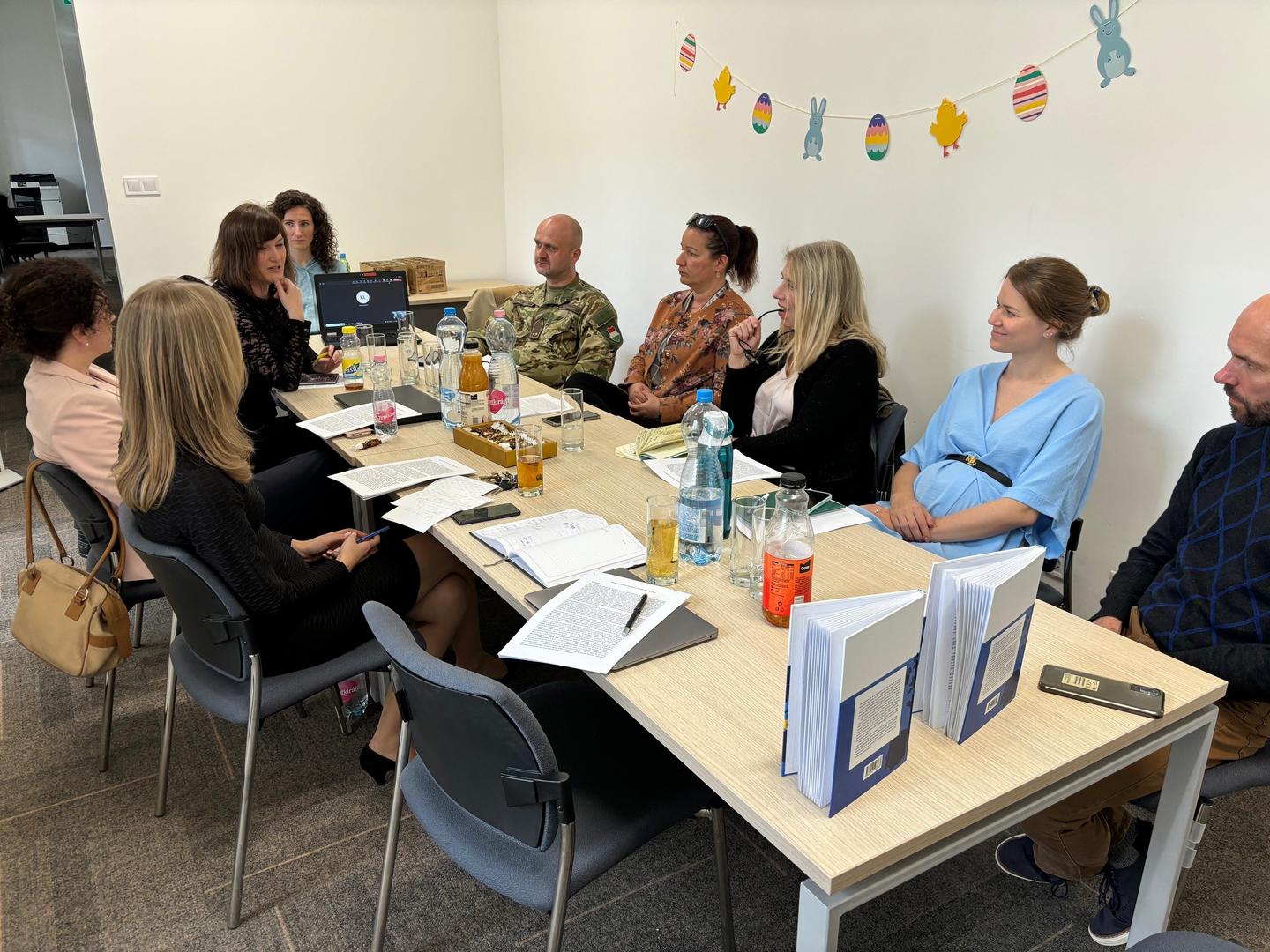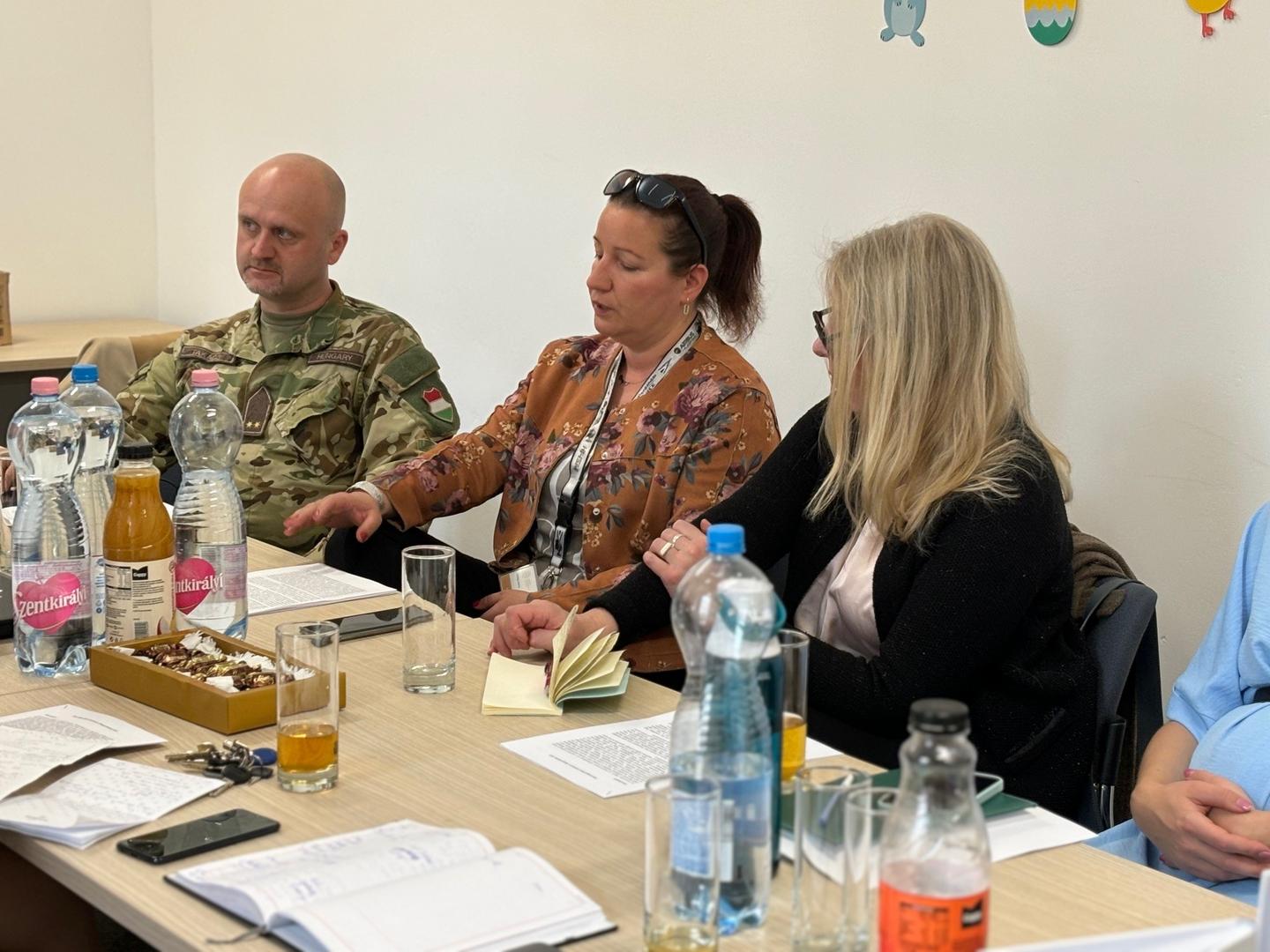On April 3, 2024, Ludovika University of Public Service hosted the 2024 Hungarian EU Presidency Workshop Series titled "Security Challenges from the Western Balkans", organized by the Europe Strategy Research Institute.

The Europe Strategy Research Institute has been organizing a series of workshops since September 2023, in preparation for the 2024 Hungarian EU Presidency. Researchers from the Institute prepared policy papers in their respective research areas, presenting opportunities, challenges, and proposals. These policy proposals were discussed with the Institute’s staff and invited experts, including contributions from external experts.
The last event was attended by Dóra Fülöp from the Faculty of Military Sciences and Officer Training at Ludovika University of Public Service, Erik Palusek, the Chief Advisor of the International Directorate Office at Ludovika University of Public Service, and Dániel Takács from the Faculty of Military Sciences and Officer Training at Ludovika University of Public Service. Dr. Gábor Szász, professor emeritus at Dennis Gabor University, provided written comments on the policy proposal.

Timea Zivic, a researcher at the Europe Strategy Research Institute of Ludovika University of Public Service, presented the main findings of the policy paper and her proposals to the Presidency. She stated that the European Union's main expectations towards the Western Balkan countries are full compliance with accession chapters 23 and 24, including the fight against organized crime and corruption, and alignment with the Community's foreign, security, and defense policy, forming the basis for accession negotiations. The pace of negotiations with EU candidates will mainly depend on the progress made in implementing rule of law reforms. In the policy paper, the concept of security policy has been used in a narrower sense, understanding security challenges as the management, detection, and prevention of law enforcement-related security risks. Referring to academic literature on the subject and the European Commission's annual reports on the region's countries, it is evident that problems related to organized crime and corruption are significantly hindering European integration. The countries of the region face challenges such as drug and firearms trafficking, human trafficking closely linked to migration, and the growing prevalence of cybercrime.
The policy paper also highlighted the geo- and security risks of the Western Balkans remaining outside the EU, including organized crime and corruption, migration, the spread of disinformation, and the strengthening influence of China, Russia, Turkey, and Gulf countries in the region. A new political and social dialogue is needed, rather than exacerbating existing tensions and divisions. The countries of the Western Balkans require substantial assistance in the fight against organized crime and corruption, necessitating the development of region-specific strategies. Furthermore, maintaining stability and security in the region relies on easing national-ethnic tensions and encouraging Belgrade-Pristina to resume dialogue and cooperation.

During the presidency, Hungary will have the opportunity to take symbolic and foundational measures. However, to initiate a dialogue and draw on its own experience of accession in 2004, it can propose to the Commission how to leverage previous enlargements to Central and Eastern Europe and suggest transitional arrangements to facilitate the integration of the Western Balkans while maintaining competitiveness criteria for the countries involved.
Subsequently, the invited experts and the Institute’s staff presented their suggestions and comments on the policy paper.